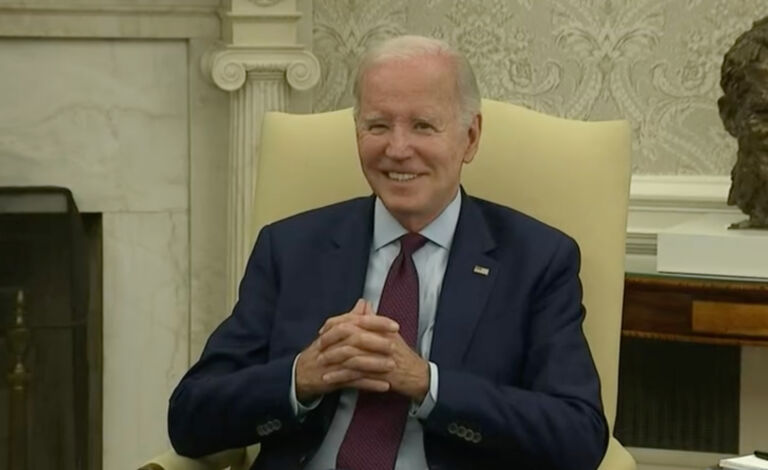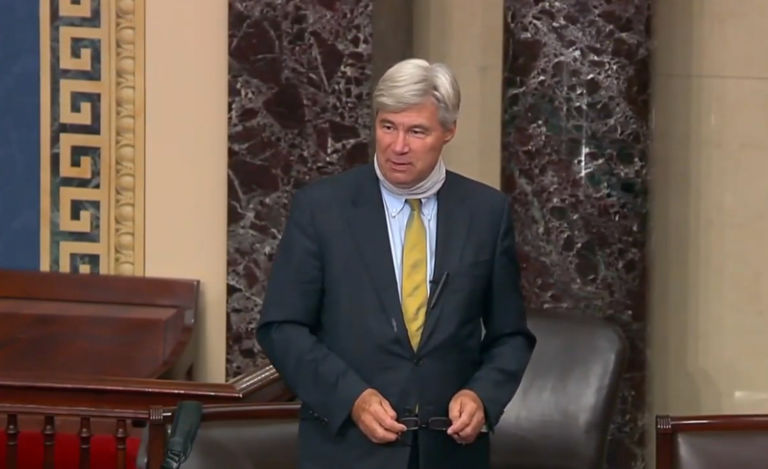If you ask most people, they would likely assume that when going to the polls, voters have to show a photo ID. Every time I vote, I instinctively reach for my ID because otherwise, how would election officials establish my identity? To rent a video, one needs an ID, but to vote, one doesn’t need an ID. There’s something wrong with that picture.
The North Carolina GOP apparently is going to push for a new law that photo IDs be required for voting. This would be a law that is way past due.
Q. Is requiring a photo ID constitutional?
A. Yes, the United States Supreme Court held, in a 6-3 decision, that states can require photo IDs from individuals who want to vote.
The opinion in that 2008 case, Crawford v. Marion County, was written by none other than ultra-liberal Justice Stevens.
Q. Wouldn’t there be a burden on the indigent and the elderly?
A. The Indiana law that was being challenged in Crawford created numerous exceptions to protect against any burden:
- The law doesn’t apply to anybody casting ballots at nursing homes.
- Voters can get a free non-driver’s license ID.
- Even if a voter doesn’t have an ID with him at the poll, he could still vote by casting a provisional ballot and then going to the courthouse within 10 days of the election and providing a photo ID.
If the individual doesn’t have the photo ID because of indigent status or religious objections to being photographed, then the individual may still cast a provisional ballot and then must go to the courthouse within 10 days of the election to sign an affidavit.
In Crawford, the Court explained the lack of evidence to support any alleged burden:
The record says virtually nothing about the difficulties faced by either indigent voters or voters with religious objections to being photographed. While one elderly man stated that he did not have the money to pay for a birth certificate, when asked if he did not have the money or did not wish to spend it, he replied, "both." From this limited evidence we do not know the magnitude of the impact SEA 483 [the Indiana Law] will have on indigent voters in Indiana. The record does contain the affidavit of one homeless woman who has a copy of her birth certificate, but was denied a photo identification card because she did not have an address. But that single affidavit gives no indication of how common the problem is. [Internal citations omitted]
Q. Why is such a law necessary?
A. Simple: To protect against voter fraud.
Q. What about the claim that there’s no evidence that voter fraud exists?
A. This is an absurd argument. There’s no way to have a good sense of how rampant voter fraud is when states aren’t properly looking for fraud. There are many ways fraud can exist. For example, it’s very easy to register to vote under fake names. There are no cameras at polls to make sure somebody isn’t voting multiple times.
Not to mention, the Court discusses many instances of voter fraud having taken place. Indiana reportedly had thousands of registered voters who "had either moved, died, or were not eligible to vote because they had been convicted of felonies."
Q. What should North Carolina do?
A. The North Carolina legislature should pass a law modeled closely after the Indiana law. If certain provisions were changed, such as anything that makes it more difficult for the indigent, then a court could shoot down a voter ID law. The Indiana law is stringent and has already been deemed constitutional.
Quick Takes
NC Attorney General: Sweeps Ban Partly Valid; Ruling To Be Appealed
North Carolina Attorney General Roy Cooper issued an advisory letter on Dec. 2 informing law enforcement that most of the state’s Dec. 1 ban on video sweepstakes machines remains in effect, despite conflicting rulings last month from two different superior court judges.
Federal judge rules Cary violated free speech rights
A federal judge ruled Tuesday that the town of Cary restricted a resident’s free speech when it asked him to tone down a racy protest sign.
David Bowden sued the town in November 2009 claiming that Cary violated his First Amendment rights by asking him to remove large, bright-orange lettering painted on the front of his house that read "Screwed by the town of Cary."
New state revenue chief vows to collect sales tax on online buys
North Carolina Revenue Secretary David Hoyle is on a mission to collect the sales tax on purchases North Carolina residents make from online retailers.
Under federal law, Internet companies aren’t required to collect sales tax unless they have a physical presence in a state.


